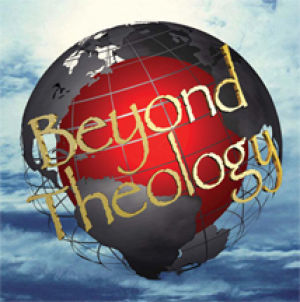KTWU producing series on controversial subject matter
October 22, 2007
“It may rattle some cages. It may offend some people. But, hopefully we will provide some food for thought,” said Dave Kendall, media anthropologist and producer of “Beyond Theology.”
Produced at the KTWU studios on Washburn University’s campus, “Beyond Theology” is a 10-part documentary series that examines current world issues and changes in the very conceptions that guide individual consciousness and society.
The project began as a discussion about the recent revival of the “What Would Jesus Do?” movement. That question first appeared in the late 1800s in a series of “sermon stories” told by Reverend Charles M. Sheldon, a Protestant minister at Central Congregational Church in Topeka, Kan.
Instead of producing a short historical documentary on Sheldon, Kendall chose to examine the relevance of the question.
“People from a lot of different faith traditions now live together in close proximity,” said Kendall. “To ask the question ‘What Would Jesus Do,’ well, that doesn’t quite relate to some people. It’s not part of their tradition. So how do you reframe or reinterpret that question to make it more broadly relevant today?”
Kendall and director of photography Scott Williams traveled across the U.S. and Canada to work with leaders in the fields of religious and cultural studies. They traveled to the Congress of World’s Religions in Montreal for inter-faith discussions about global issues caused by theological conflicts.
“You look at what is going on in the world today and there are some really serious challenges that we are facing,” said Kendall. “You have the whole idea of the global war on terror. You have the whole challenge of the conflict of cultures that we are grappling with. Sometimes it’s not only between cultures but it’s within cultures, where you have so-called culture wars and all the antagonism that is created there.”
Interview subjects included Karen Armstrong, Huston Smith, Seyyed Nasr, Rabbi David Rosen, Bishop John Shelby Spong, Stephen Prothero, Rev. Peter Gomes and Dr. James Forbes, Jr. Each interview took the series in a new direction and each participant expanded the dialogue across cultures and traditions.
The title for the first episode from the series, “Finger pointed at the moon,” is a line from a speech made by Sister Joan Chittister about a Buddhist analogy that describes how people must look past their own finger to see where they are pointing.
“For me, working with this subject is one way of participating in what hopefully will be some sort of ongoing dialogue that will give some sense of clarity about what is going on and [help us to] be able to work together to address some of the basic challenges,” said Kendall.
Kendall’s anthropology background served as a framework through which to examine the roots of ongoing human conflicts and global crisis.
“I think the only way we have much of a hope of addressing some of these challenges is if we have a bigger view of what is going on here and the long term process that we are part of,” said Kendall. “People are trying to get a better handle on what’s happening, I think. It’s not like there is any one final answer.”



